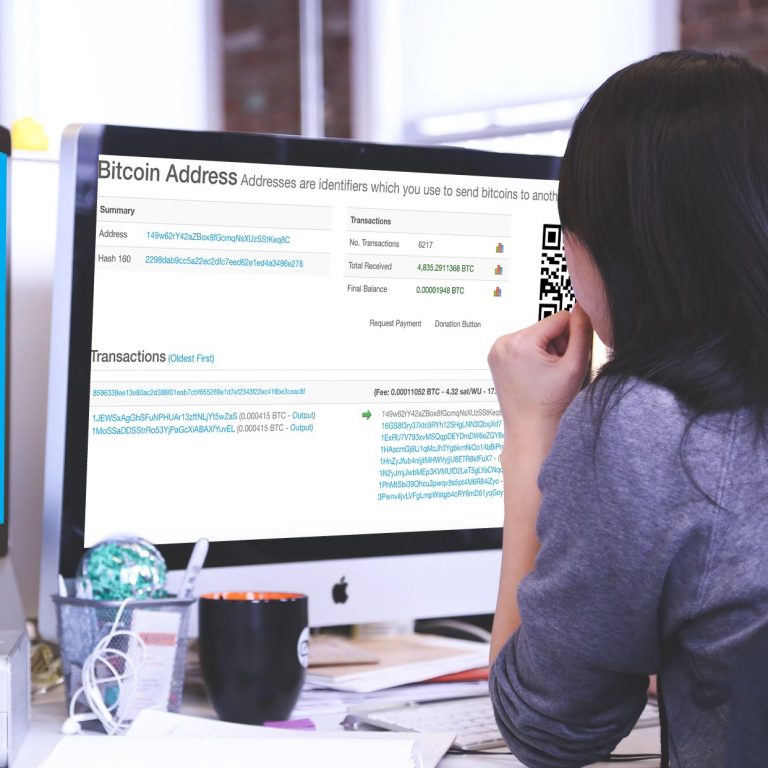Latest news about Bitcoin and all cryptocurrencies. Your daily crypto news habit.

It has been widely reported this week that the U.S. government has blacklisted two BTC addresses linked to cyber crime. These particular addresses were singled out because their owners are believed to be Iranians, whose country is currently facing heavy economic sanctions from the U.S. While the BTC addresses are clearly connected to ransomware, mainstream media has gotten one crucial element of the story wrong: You can’t blacklist a bitcoin address.
Also read: BCH Upgrades: What’s New and What’s Next
Bitcoin: Unblockable Since 2009
 The Office of Foreign Assets Control (OFAC) is the financial intelligence wing of the U.S. Treasury Department. It enforces economic sanctions against foreign entities the American government has taken exception to. Right now, it has Iran in its sights. By OFAC’s own admission, however, trying to blacklist bitcoin addresses is a first. “While OFAC routinely provides identifiers for designated persons, today’s action marks the first time OFAC is publicly attributing digital currency addresses to designated individuals,” explained the agency, adding:
The Office of Foreign Assets Control (OFAC) is the financial intelligence wing of the U.S. Treasury Department. It enforces economic sanctions against foreign entities the American government has taken exception to. Right now, it has Iran in its sights. By OFAC’s own admission, however, trying to blacklist bitcoin addresses is a first. “While OFAC routinely provides identifiers for designated persons, today’s action marks the first time OFAC is publicly attributing digital currency addresses to designated individuals,” explained the agency, adding:
Like traditional identifiers, these digital currency addresses should assist those in the compliance and digital currency communities in identifying transactions and funds that must be blocked and investigating any connections to these addresses. As a result of today’s action, persons that engage in transactions with [these addresses] could be subject to secondary sanctions.
You Can’t Blacklist a Bitcoin Address
The addresses in question, 149w62rY42aZBox8fGcmqNsXUzSStKeq8C and 1AjZPMsnmpdK2Rv9KQNfMurTXinscVro9V, have been involved in over 7,000 transactions since 2013 and received close to 6,000 BTC. As of Nov. 28, anyone interacting with these addresses could technically be held liable by the U.S. government and punished in some way. In reality, though, these threats are little more than empty words. No one — not even the U.S. government, with its army of apparatchiks and enforcers — can prevent a specific address from sending or receiving bitcoin. With cryptocurrencies such as EOS or ripple, OFAC would likely have more success, but decentralized assets such as BTC and BCH are uncensorable.
 Two of the addresses that have sent BTC to a ‘blacklisted’ Iranian address in the last 24 hours
Two of the addresses that have sent BTC to a ‘blacklisted’ Iranian address in the last 24 hours
To demonstrate the pointlessness of the blacklisting, both BTC addresses have received transactions in the past 24 hours. In one instance, vanity addresses were used to troll OFAC and to reiterate the futility of its digital currency sanctions. While cryptocurrency exchanges can and do block accounts linked to certain addresses, the Bitcoin protocol remains immune from such interference. Permissionless and stateless, bitcoin can’t be blacklisted. That’s why it’s so valuable.
What are your thoughts on the U.S. ‘blacklisting’ bitcoin addresses? Let us know in the comments section below.
Images courtesy of Shutterstock and Blockchain.com
Need to calculate your bitcoin holdings? Check our tools section.
Disclaimer
The views and opinions expressed in this article are solely those of the authors and do not reflect the views of Bitcoin Insider. Every investment and trading move involves risk - this is especially true for cryptocurrencies given their volatility. We strongly advise our readers to conduct their own research when making a decision.